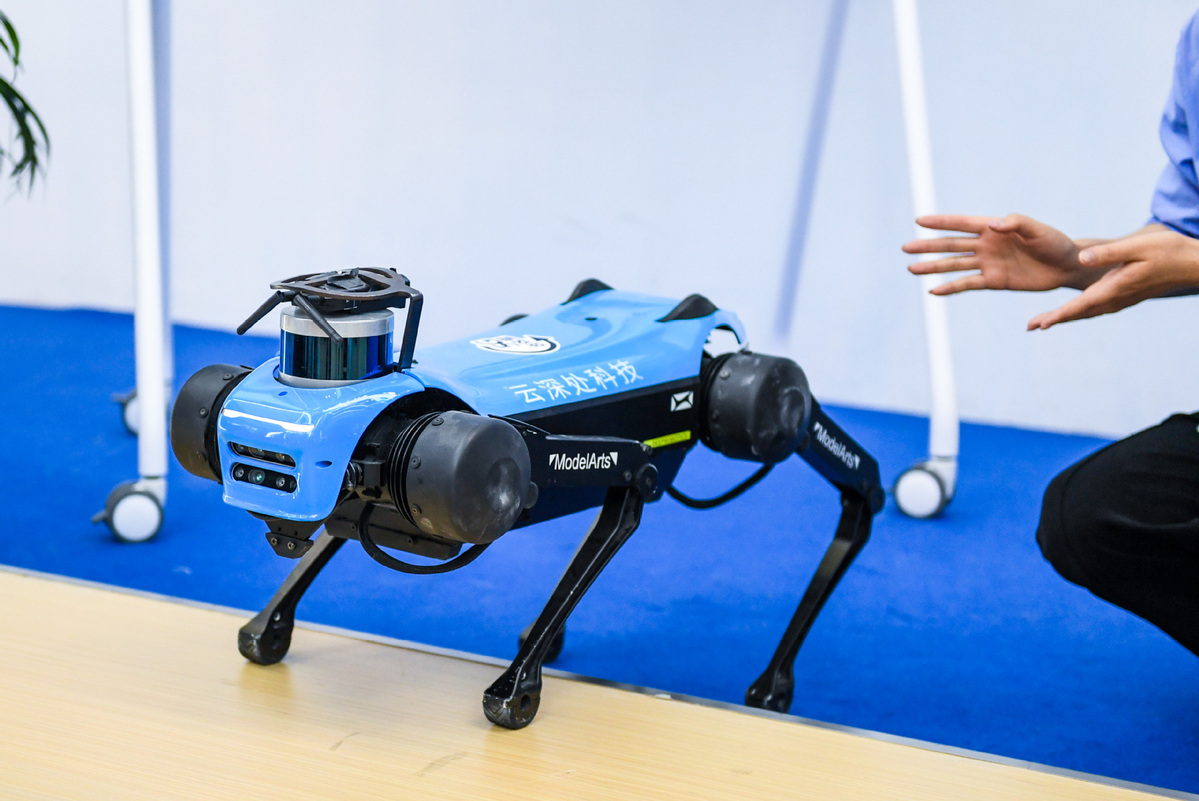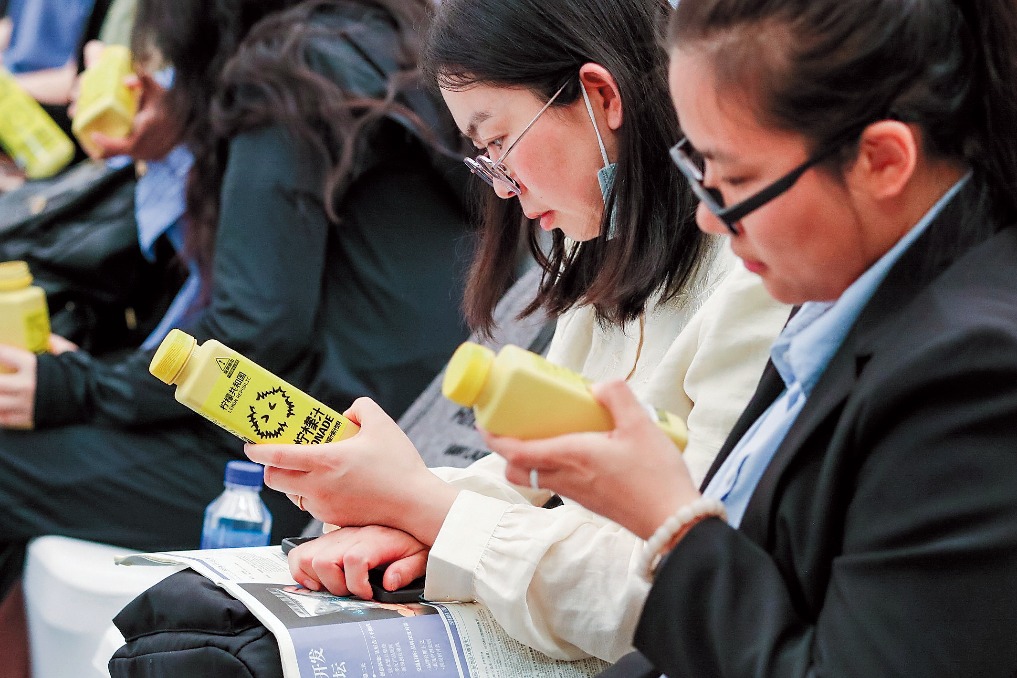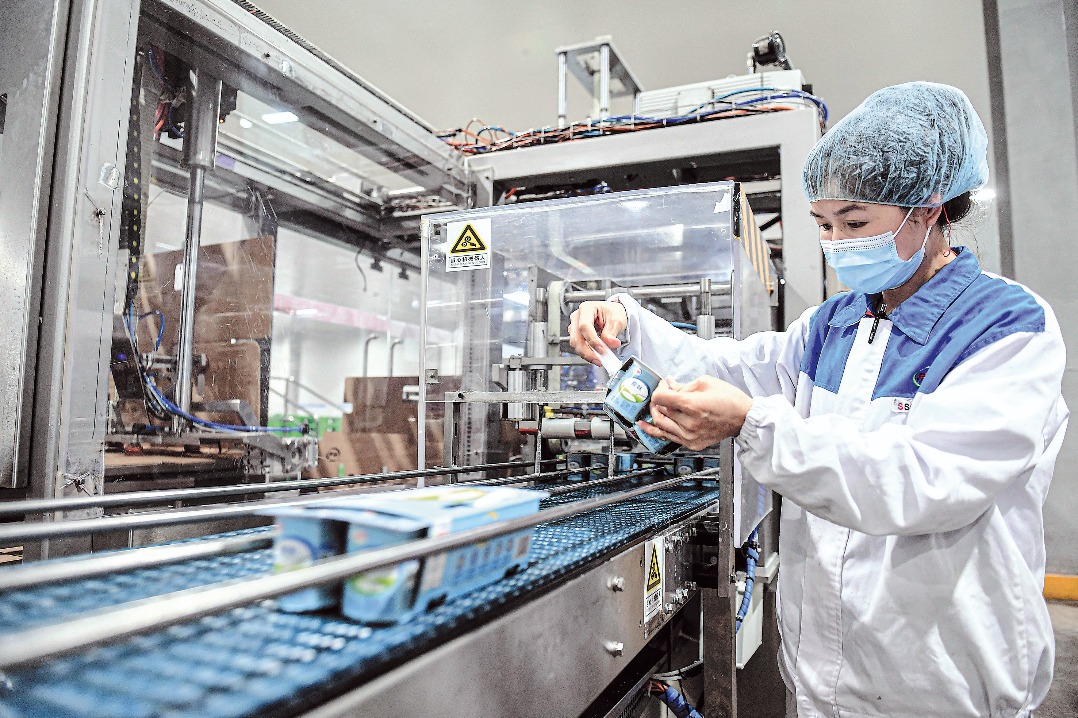Shenzhen to expand innovation potential


The manufacturing hub of Shenzhen, in South China's Guangdong province, is further exploring breakthroughs in research and technological innovation to cement its role as the "core engine" of the Guangdong-Hong Kong-Macao Greater Bay Area, officials said.
The city is formulating a 10-year action program for basic scientific research, aiming to use the outcomes to position itself at the vanguard of technological innovation, said Xi Weizhong, an official of Shenzhen's technology innovation commission.
"The key research directions in the area will be determined by the characteristics and needs of industries in the city," he said.
Shenzhen now has 18,650 national high-tech enterprises, four times the number of five years ago, ranking second among cities nationwide. The city's innovation capabilities in artificial intelligence, gene sequencing, new energy vehicles and drones are already at the forefront globally.
However, although Shenzhen has strong technological innovation capabilities when it comes to applied science, it remains weak when it comes to original innovative ideas, said Wang Weizhong, the city's Party secretary.
Efforts are underway to change that. Guangming Science City, covering 99 square kilometers on the west side of the city, is expected to be a world-class science center with global influence in the coming decades, according to the Shenzhen government. Constructed in phases, the layout of the facility is expected to be completed by the end of next year.
Shenzhen Bay Laboratory, established in January 2019, has already said it will locate its operations in the science city and is committed to "full chain" research and development in the field of biomedicine-from basic scientific research to market application.
"Shenzhen's innovative mechanism and abundant investment allow scientists to freely explore areas in basic scientific research," said Hu Xiaojun, Party secretary of the Shenzhen Bay Laboratory.
Scientists who join the laboratory cannot only choose their own research direction, but also their own teams and equipment and enough research funds.
Huang Kai, who studied overseas, returned to China last year and joined Shenzhen Bay Laboratory. The 33-year-old is engaging in basic scientific research using software to simulate the folding of genes in three-dimensional space as part of biomedical research.
Huang said China still lacks advanced computational biochemistry software. The research and development cycle is long and costly, he said. "This kind of project can only be done in a new type of R&D institution like Shenzhen Bay Laboratory. That is why I chose Shenzhen," said Huang.
Since 2018, Shenzhen has invested at least 30 percent of its annual scientific and technologic R&D funds in basic scientific research and applied scientific basic research. "Shenzhen now guarantees basic scientific research investment through local legislation, which is its unique advantage," Hu said.
The legal guarantee for basic research funding was introduced last year, and the city spent more than 4.99 billion yuan on basic scientific research and applied scientific basic research in 2020, which accounted for 42.7 percent of its R&D expenditure.
Basic scientific research funding in China accounts for 6 percent of R&D funding on average. The average figure for developed countries is about 15 percent, Hu added.
There are six National Key Laboratories, four provincial laboratories, 12 basic research institutions and 2,700 innovative organizations in Shenzhen.
In 2020, Shenzhen had 20,200 international patent applications, 1.5 times that of 2015, ranking first among major Chinese cities for 17 consecutive years.
To promote scientific research, the city has established an innovation chain, which consists of basic scientific research, technological innovation, industrialization, and financial and talent support, said Xiao Yong, an official from the local development and reform commission.
"For the past 40 years, talented people have been the first resource to create miracles in the city. And the talent strategy is the core strategy of Shenzhen's development," said Wang, Party secretary of Shenzhen.
The city estimates it now has nearly 18,000 people with high-level talents, and more than 150,000 talented people from overseas.
Shenzhen has established a 10-billion-yuan fund to attract and support talented people and entrepreneurs. The city's 14th Five-Year Plan (2021-25) projects the local economy will reach 4 trillion yuan by the end of the period, up from 2.8 trillion yuan in 2020.




































